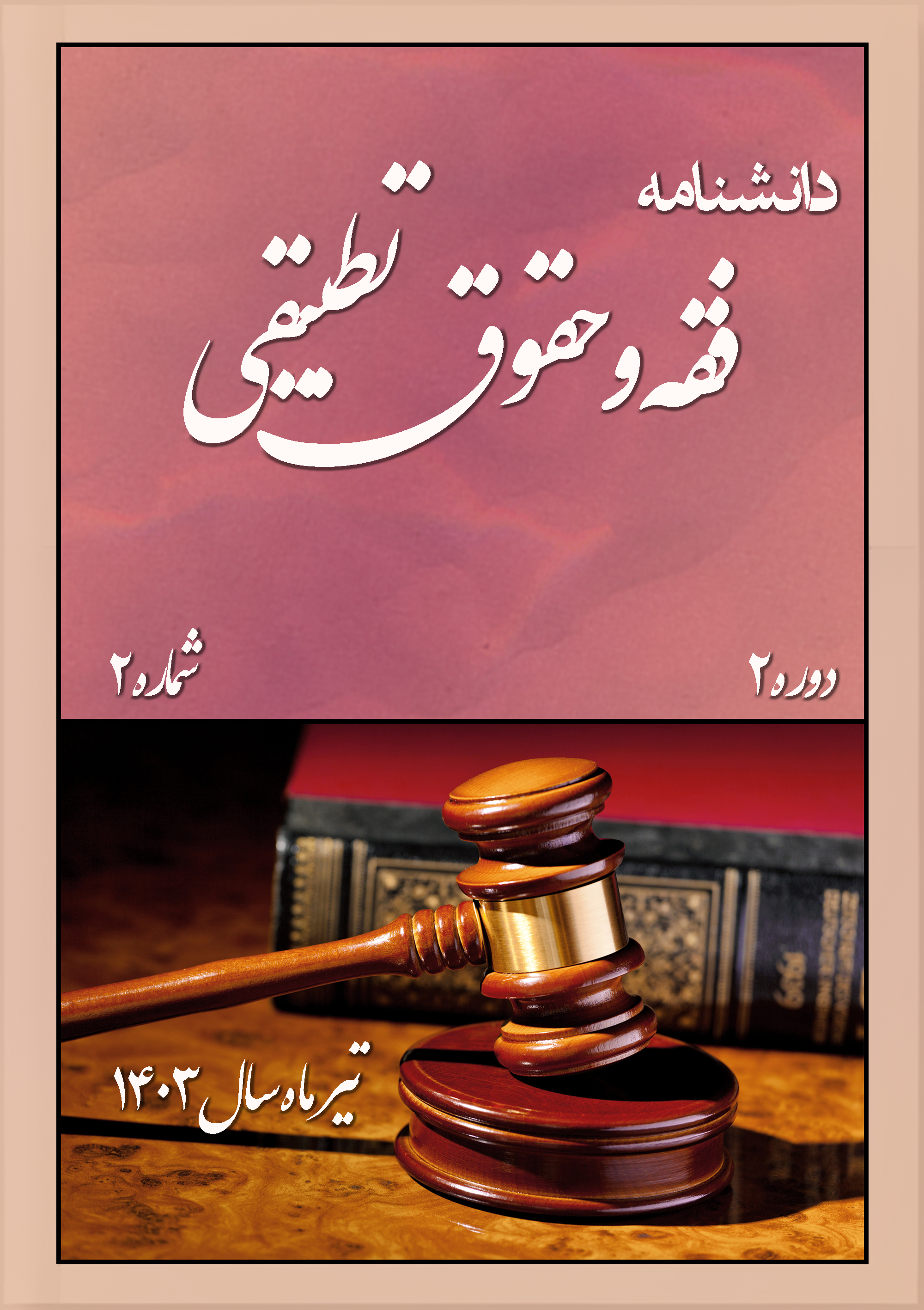Examining the Rule of “La-Zarar” in Damages Arising from Broken Engagements in Civil Law and the Viewpoint of Imam Khomeini
Keywords:
Imam Khomeini’s Perspective, Civil Code, Dissolution of Engagement, Damages, Rule of La ZararAbstract
The central question of the present study is whether the rule of La-Zarar (“no harm and no harassment”) can serve as a legal basis for claiming damages arising from the dissolution of an engagement (namzadi) under Iranian law, and how the Civil Code and jurisprudential interpretations—particularly the opinion of Imam Khomeini—offer guidance on this matter. The significance of this topic lies in the absence of an explicit legal provision concerning compensation for material and moral damages caused by the annulment or termination of an engagement. This legal gap has consistently led to divergent judicial practices and uncertainty for the aggrieved party. A correct interpretation of the La-Zarar rule and its proper application can fill important gaps in ensuring fairness and preventing irreparable harm between the parties. Using an analytical-comparative approach, this study first examines the relevant provisions of the Civil Code (Articles 1035–1040) and the jurisprudential texts related to the La-Zarar principle, with a particular focus on the opinions of Imam Khomeini. It then critiques the existing approaches and interpretations. The overall findings of the research indicate that the La-Zarar rule, both in Islamic jurisprudence and in Iranian statutory law, can be invoked as a legitimate basis for compensating certain damages resulting from the breaking of an engagement, provided that the harm is extraordinary and provable.
Downloads
References
Hosseīnī-Niyā, S. M. (2009). Jurisprudential and Legal Studies on General Rules. Islamic Research Center.
Hurr 'Āmilī, M. i. Ḥ. (2016). The Means of the Shi'a (Vol. 25).
Kātūziān, N. (2005). Rules of Jurisprudence (Vol. 2). Mizan Publications.
Kātūziān, N. (2016). Legal Events. Enteshar Publishing Company.
Kātūziān, N. (2018). General Rules of Contracts. Enteshar Publishing Company.
Khomeini, S. R. (2016). The Liberation of the Means (Vol. 2). Institute for Compilation and Publication of Imam Khomeini's Works.
Modarresi Yazdī, S. M. B. (2011). The Rule of No Harm in Islamic Jurisprudence and Law. Bustan-e Ketab.
Modarresi Yazdī, S. M. Ḥ. (2011). The Jurisprudential Rules. Isrā' Institute.
Muṣaffā, M. (2014). Commentary on the Civil Code in the Current Order. SAMT.
Mūsāvī Bojnūrdī, S. M. (1999). The Jurisprudential Rules, Vol. 2: The Rule of No Harm and Liability (Vol. 2). Ministry of Culture and Islamic Guidance Publications.
Nūrbahā, M. (2003). Civil Law: Family. Dadgostar Publishing.
Sharī'at-Bāqerī, Ḥ. (2013). Analysis of the Rule of No Harm in Iranian Family Law. Research Journal of Islamic Jurisprudence and Law(10).
Subhāni, J. f. (2010). An Exploration into the Jurisprudential Rules. Imam Sadiq (a.s.) Institute.
Downloads
Published
Submitted
Revised
Accepted
Issue
Section
License
Copyright (c) 1403 مهدی زارعی عالمی (نویسنده); عباس عرب خزائلی; سید مهدی احمدی (نویسنده)

This work is licensed under a Creative Commons Attribution-NonCommercial 4.0 International License.










